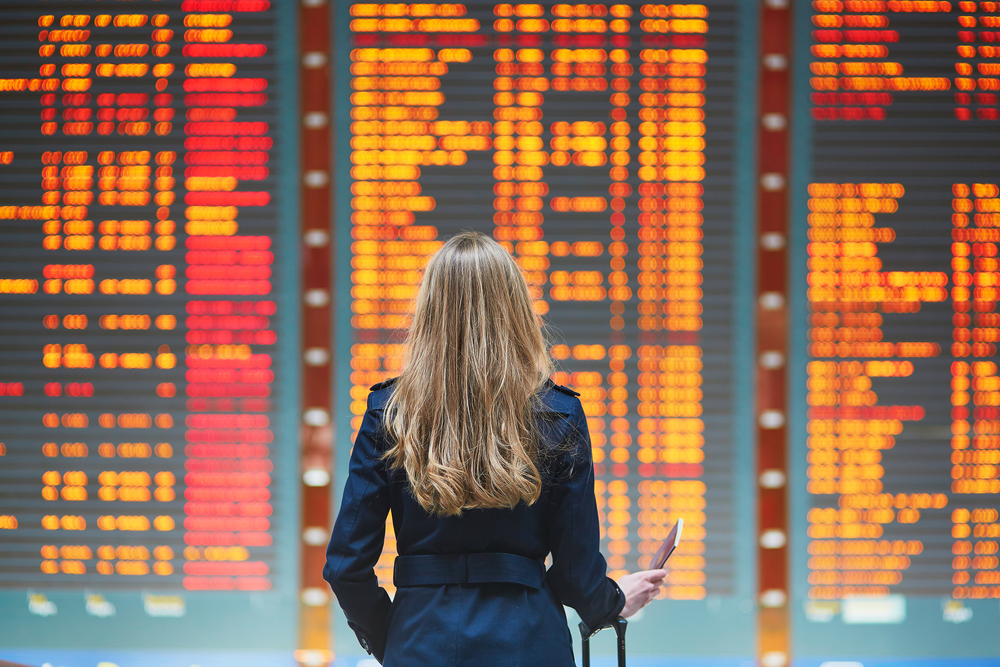IATA (International Air Transport Association ) has applauded the publication of new COVID-19 Aviation Health Safety Protocol guidelines for the safe restart of air transport in Europe.
Produced by the European Aviation Safety Agency (EASA) and the European Centre for Disease Prevention and Control (ECDC), the guidelines are aligned with recommendations provided by both the airline and airport sector for a layered approach of temporary measures to protect public health while allowing viable air services to help drive the European economic recovery.
However, the guidelines will only be effective if all European states deliver harmonized implementation and mutually recognize each other’s efforts. Failure to do so would harm public confidence in the aviation system, with negative consequences for the economy, and jobs.
Key measures in the EASA guidelines include:
- Physical distancing at the airport should be maintained. Terminal infrastructure, such as with baggage drop and claim, and at security, should be optimized to prevent queuing
- The wearing of masks at all times in the airport and onboard is recommended, as is the provision of appropriate personal protective equipment (PPE) to staff
- Enhanced cleaning procedures in both the airport and aircraft are recommended, especially for frequently-touched surfaces
- Where allowed by the passenger load, cabin configuration and mass and balance requirements, airlines should ensure, to the extent possible, physical distancing among passengers. Family members and individuals travelling together as part of the same household can be seated next to each other.
“EASA and ECDC has delivered a sensible framework for restarting aviation while protecting public health. The guidance is clear that while airlines should seek to maintain physical distancing where practicable, flexibility on seating arrangements is permitted. And quarantine requirements are not necessary. But it is absolutely essential that all European states apply these guidelines in a harmonized and mutually recognized way. Local deviations and exceptions will damage public confidence and make it harder to operate effectively. This would be harmful to public health and the economic recovery. IATA will support states to implement these guidelines in the fastest and most efficient way,” said Rafael Schvartzman, IATA’s regional VP for Europe.
In a statement accompanying the Protocol, EASA explained that the recommended measures will be regularly evaluated and updated in line with changes in knowledge of the risk of transmission as well as with the development of other diagnostic or preventive measures. IATA is ready to support authorities in this process of refinement and optimization of the recommendations and guidelines.
“We will work closely with regulators to ensure that the measures in place adapt accordingly”
The EASA and ECDC guidelines will make an important contribution to the discussions being held by the International Civil Aviation Organization COVID-19 Aviation Recovery Taskforce (ICAO CART) which is tasked with developing the global standards needed for the safe re-start of aviation.
To assist with the CART process, IATA has been working continuously with authorities and industry partners to develop common positions. With the airport sector, a document—Safely Restarting Aviation: ACI and IATA Joint Approach—has been published. Moreover, the 31 CEOs of the IATA Board of Governors have agreed on a Declaration of Five Principles for Re-starting Aviation.
- Aviation will always put safety and security first
- Aviation will respond flexibly as the crisis and science evolve
- Aviation will be a key driver of the economic recovery
- Aviation will meet its environmental targets
- Aviation will operate to global standards which are harmonized and mutually recognized by governments
“The safety of our passengers and crew is the number one concern. No single measure is going to achieve that. That’s why we are taking a layered approach that is guided by science and which is aligned with EASA’s recommendations. As the medical situation and science evolve, we will work closely with regulators to ensure that the measures in place adapt accordingly. And our five principles will guide us to a safe and sustainable restart for air travel and a vital boost for economic activity,” said Schvartzman.
“In Europe, we have been in lockdown for many weeks. The tourism sector, representing millions of jobs across Europe, is particularly dependent on connectivity re-starting. Enforced isolation has left us yearning to reconnect with the world—to once again enjoy the freedom to explore, to share experiences with our loved ones, and to escape the pressures of everyday life. With these sensible guidelines in place, we can all look forward to the freedom that only flying can provide,” he concluded.



 share
share







































